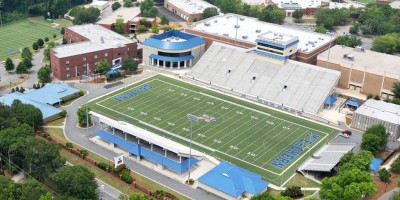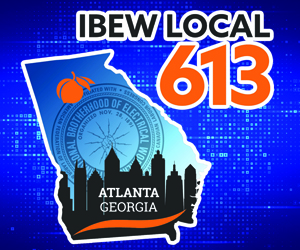
The month of May can be expected to be critical in determining what is in store for the summer months ahead and what the potential reopening of school in the fall may look like. When schools abruptly closed across the U.S. this past March, every facet of the nation’s education system was impacted and administrators, educators, students and parents were thrust into an experiment of remote education and virtual learning. Consequently, sports, proms, graduation ceremonies and all other gatherings were axed and society scrambled to adjust to this unforeseeable new normal.
Some states and countries around the globe have started to relieve their lockdowns and stay-at-home orders recently, which has fueled the debate about how to reopen schools and return to some form of normalcy as safely and swiftly as possible. These considerations center not only around a possible timeframe that schools will be given the green light to reopen their doors, but also what changes may have to be made to allow schools to reopen and subsequently remain open. Whatever decisions are ultimately made, they will be guaranteed to have a direct impact on the fate of high school athletics in the fall and whether or not the 2020 high school football season will kick off as originally scheduled.
Professional sports leagues are also currently crafting up plans to get back up and running. As of now, the NFL’s 2020 season schedules are still set to be released on May 9, even as recent reports show that the league has been planning possible contingencies—despite expressing resolutely its desire to play out 2020 as normal. But big events continue to either cancel or postpone as the annual Peachtree Road Race on July 4 has been moved to Thanksgiving Day.
As for what the medical experts are saying in regards to sporting events, Dr. Anthony Fauci, the United States’ top infectious disease expert, stated in April that the only way professional sports will happen in summer 2020 is by holding events without fans and by having players stay in hotels—a reality that the NFL is going to have to maneuver in the near future in order to have its offseason and preseason schedules remain on track.
“There’s a way of doing that,” said Fauci about playing a season. “Nobody comes to the stadium. Put [the players] in big hotels, wherever you want to play, keep them very well surveilled. … Have them tested every single week and make sure they don’t wind up infecting each other or their family and just let them play the season out.”
The threat of a second wave of the virus if life were to return to business as usual could force leagues to consider the extraordinary possibility of playing out parts (or all) of their 2020 seasons without fans in the stands. The NFL’s massive television contracts could allow them to do so. At the high school level, playing games without fans could also be done, but the financial consequences would be drastically more impactful without the money generated at the gates—not to mention it would logistically be much more challenging from a number’s perspective. For example, if games were played at the NFL level without fans, this strategy would still likely require each of the teams to be tested for COVID-19 on a week-to-week basis. With just 32 teams and immense resources, the NFL could feasibly do that. Coordinating that process at the high school level with more than 400 GHSA football programs competing would be extremely difficult. Not to mention, with any positive test requiring a 14-day quarantine period, this strategy would still be subject to the possibility of massive disruptions that could cripple the season if an outbreak were to occur.
On Monday, the NFL announced that its five scheduled international games for 2020 — four in London and one in Mexico City — will instead be played stateside due to the ongoing COVID-19 pandemic.
“After considerable analysis, we believe the decision to play all our games domestically this season is the right one for our players, our clubs, and all our fans in the US, Mexico and UK,” NFL executive vice president, chief strategy and growth officer Christopher Halpin said. “We greatly appreciate the support of our governmental and stadium partners in Mexico and the United Kingdom, who all agree with this decision, and we look forward to returning for games in both countries in the 2021 season.
There are additional concerns that exist right now that precede the proposed start of the 2020 high school football season in August. Unless teams are able to gather relatively soon, players will be deprived of the necessary time to physically prepare for the season. Normally, teams spend June doing strength and conditioning, playing in 7-on-7 tournaments and then holding camps or scrimmages before the season kicks off in August.
Veteran head coaches Tim McFarlin and Rush Propst spoke about the importance of having this preparation phase before the season when they appeared on the ‘Georgia Prep Sports: From a Distance’ video podcast last week. McFarlin also addressed Georgia Governor Brian Kemp’s decision to begin reopening Georgia businesses and what might be learned in this stage of the reopening strategy in the weeks ahead.
“I know his decision certainly raised a lot of attention and I know that I would hate to be in his seat,” said McFarlin. “We all can second guess, but the fact of the matter is that his decision will define stuff for us one way or another. I think in about 14 days we are going to know much more because if there is a resurgence of the virus after things opened back up then that certainly would have an impact on whether or not we are going to have fall sports.”
Propst, who is still impacted by the death of one of his players in 2002 who died of a heart issue during a workout, says that his top priority is the health and safety of his players during these unprecedented times.
“I think having time to prepare for the football season is so important,” said Propst. “I think we need 7 to 8 weeks of hard football training and that is weights, that’s conditioning, that’s practice and a lot of things to get back into. I’m really worried that injuries could be at an all-time high because bodies are not developed. People can say that they have been working out on their own, but it is not the same. They are probably getting about 25-30 percent of what they need to be getting because your natural self is not going to be able to push yourself like a coach and a coaching staff can. …If we don’t start by June 1st or June 5th, then we aren’t going to have enough time to start practice Aug. 1. I don’t have a problem moving practice back or taking one of our open weeks off or moving the season back a couple weeks. I want us to be safe, that’s my number 1 priority.”
Other than the state of Georgia, no place in the universe has more of an affinity for high school football than the state of Texas. This past week, Michael Hinojosa, superintendent of the Dallas Independent School District made a painful and public admission that he was beginning to reconsider sports in the fall.
The article, titled “Under Pressure to reopen this fall, school leaders plot unprecedented changes” states that “Hinojosa said that Plan A is for Dallas schools to open Aug. 15 under normal conditions, but he believes that’s unlikely. So he’s considering a schedule in which some students attend school in person on Mondays and Wednesdays and others on Tuesdays and Thursdays, with everyone remote on Fridays. He said lunches would probably need to be in classrooms to avoid large groups, and he is reconsidering sports.”
This past weekend, NPR also released an ominous piece titled “9 Ways Schools Will Look Different When (And If) They Reopen.” Among the possible changes were a bevy of which would jeopardize fall sports and at No. 7 on the list was a prediction that there would be “no assemblies, sports games or parent-teacher conferences” in this stage of the new ‘Coronavirus Era’.
While national models have offered some positive signs about COVID-19 being past its peak, all of the uncertainty about what the future holds feel far from being abated. Nevertheless, this Wednesday, University of Georgia President Jere Morehead sent out an email that stated that the University is anticipating a return to in-person instruction for the upcoming fall semester as well as a fall sports season. Morehead pointed out that the plans in place remain ‘fluid’ and subject to change, but the plan currently being adopted by the University of Georgia President is positive in regards to the 2020 football season in this state. Additionally, the strategy aims to use this summer to practice measures that would smooth the path into the start of the fall semester.
The fact of the matter is that the fate of the Georgia high school football season will be at the mercy of the Governor and the decisions made by policy makers and school systems. A clearer path forward will likely be seen in the coming weeks and hopefully we are starting to turn a corner in the war against COVID-19.
Since the plans to combat the spread of the virus are characteristically crafted in stages, this could lead to a scenario I have yet to mention where the start of the high school season is pushed back as a gradual reopening strategy unfolds. This seems like a real possibility at this point. If this were to be the case, it would be a safe and practical path forward that would allow teams to have the necessary time to prepare if the summer remains disrupted.
There is a variety of other potential contingencies and options that could be considered.
-
The season starts on time, but with social distancing and personal protection required by fans. If the season were to go on as scheduled while social distancing orders were in place, teams would need to be tested for the virus before and during the season because a contact sport like football would obviously be incapable to adhering to social distancing measures
-
The season starts in September. If the start of the season needs to be pushed back to September to give the mitigation strategy more time, then the two bye weeks could be cut out to help condense the length of the regular season to 10 weeks instead of the typical 12-week regular season
-
The season starts in October. If an October starting time were needed, then perhaps the teams could play only region games in an abbreviated schedule. The playoffs could also be abbreviated if just the region champions advance to the playoffs. This strategy, however, would be difficult to organize without changes made to the region landscape as currently some regions have just four teams while others have twofold that.
-
The start of the season gets pushed back to the spring. If this were to occur, it would be good in terms of being able to have a complete season, but it would inevitably force many dual sport athletes to make difficult decisions due to the overlap.
On the afternoon of April, 30 afternoon, 247Sports Recruiting Expert Rusty Mansell posted about where the current conversations have been pointing towards. “Sounds like GHSA will start allowing football practices July 6 and acclimation practices and full pads can start July 27. First games will begin Aug. 21 weekend. Corky Kell games will kick off on Aug. 19. This is all subject to change, but that is the plan moving forward into the summer after talking with several coaches this morning.”
The economic fallout, disruptions and overall devastation caused by this pandemic over the past months have been immense and it is easy to get bogged down amidst all the competing priorities. That being said, the importance of being able to successfully have a high school football season this upcoming school year should not be taken for granted and we should adopt whatever strategy it takes to make it safely happen. Atlanta Journal Constitution Editor Kevin Riley shared on Monday’s episode of ‘Georgia Prep Sports: From a Distance’ his opinion about the prospect of having a high school football season this fall.
“I don’t know what is going to happen,” said Riley. “But I do think that people will make every responsible effort possible, in particular to get kids back in school. What we have to remember is, especially when I talk to experts about it around town, is that they love their job and the people they serve and I just don’t think they are willing to take that big chance and put people at risk.”



















































